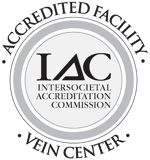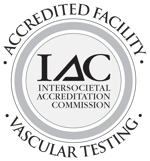Vascular Ehlers-Danlos Syndrome (VEDS), also known as Ehlers-Danlos Syndrome type IV, is a rare genetic disorder that affects the body's connective tissues, particularly collagen. Collagen is a crucial protein that provides strength and elasticity to various tissues, including blood vessels, skin, and organs.
In VEDS, there is a defect in the production of collagen, leading to weak and fragile blood vessels and other tissues throughout the body.
Symptoms and Characteristics
VEDS presents with a range of symptoms and characteristics, which may include:
- Thin, translucent skin that is prone to bruising and tearing
- Arterial injuries and dissections which can lead to aneurysms
- Varicose vein formation at earlier ages
- Fragile blood vessels that can rupture spontaneously or with minimal trauma, leading to potentially life-threatening internal bleeding
- Easy bruising and slow wound healing
- Joint hypermobility and dislocations
- Organ rupture, particularly of the intestines or uterus in women
Diagnosis and Management
Diagnosing VEDS can be challenging due to its rarity and varied presentation. Genetic testing is typically required to confirm the diagnosis, often in consultation with specialists familiar with connective tissue disorders.
Managing VEDS involves a multidisciplinary approach, including:
- Regular Monitoring: Patients with VEDS require regular monitoring of their blood vessels and organs to detect any signs of weakness or impending rupture. This may involve imaging studies such as CT scans, MRIs, or ultrasounds.
- Preventive Measures: Due to the risk of spontaneous vessel rupture, individuals with VEDS are advised to avoid activities that could strain their blood vessels, such as heavy lifting or strenuous exercise. They may also need to take precautions to prevent injuries that could lead to internal bleeding.
- Medical Interventions: In some cases, surgical interventions may be necessary to repair or reinforce weakened blood vessels or organs. However, surgery in individuals with VEDS requires careful consideration due to the heightened risk of complications.
- Genetic Counseling: Since VEDS is a genetic disorder, genetic counseling is essential for affected individuals and their families. This helps in understanding the inheritance pattern of the condition and making informed decisions about family planning.
Expert Care at The Cardiovascular Care Group
At The Cardiovascular Care Group (TCVCG), our team of specialists is experienced in managing rare vascular conditions like VEDS. We offer comprehensive diagnostic evaluations, personalized treatment plans, and ongoing support to individuals with VEDS and their families.
If you or a loved one have been diagnosed with Vascular Ehlers-Danlos Syndrome or suspect that you may have this condition, we encourage you to seek expert medical advice and reach out to our team for assistance. Early diagnosis and proactive management are key to optimizing outcomes and improving quality of life for individuals with VEDS.









.jpg?width=944&name=Castle-Connolly-Top-Doctors-Emblem-Large%20(4).jpg)